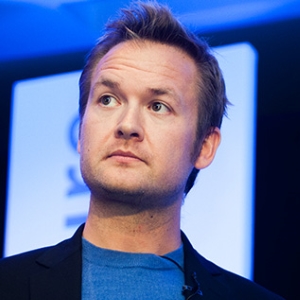Phil Simon Speaker Biography
Award-Winning Author and Workplace Collaboration and Technology Expert
Phil Simon is the world’s leading independent workplace collaboration and technology expert. A sought-after speaker, he has delighted audiences for more than fifteen years. Simon advises companies on how to use technology.
Keynote Speaker
Over the course of his career, he has spoken at more than 35,000 people in 350 in-person and virtual events in eight countries on three continents. Netflix, Harvard Business School, eBay, Cisco, IBM, Carnegie Mellon, SAS, and AutoDesk are among the hundreds of companies to have hosted Phil.
Award-Winning Author
Phil has penned 14 books. They include Reimagining Collaboration, Project Management in the Hybrid Workplace, Message Not Received, and The Age of the Platform, and The Nine—each of which has won awards.
Media
Harvard Business Review, CNN, Inc., The New York Times, Wired, NBC, CNBC, Wired, BusinessWeek, and many other prominent media outlets have featured his contributions over the years.
Racket Publishing
Phil runs Racket Publishing to help other authors in different capacities. As of January 2024, Racket has published four professional non-fiction books with plans for more.
Education
In May 2016, Simon accepted a position as a full-time faculty member at the W. P. Carey School of Business at Arizona State University. He left ASU in May 2020 Simon holds degrees from Carnegie Mellon University and Cornell University.
Phil Simon Speaking Topics
Management Lessons From In-N-Out Burger
In-N-Out founders Esther and Harry Snyder (and later their son Rich) never deviated from their core mission: to provide quality food in a clean environment with spectacular customer service. Taking lessons from their established success with In-N-Out, Phil Simon discusses the importance of following their principles: • Keep it Simple • Keep your customers and employees happy • Start small and expand cautiously While other fast food chains such as McDonald’s, Burger King, and their ilk attempted to get as big as possible as fast as possible, In-N-Out took its time.
Proceed With Caution: The Promise and Peril of Generative AI
Tools like ChatGPT, Gemini, and Claude 2 are all the rage, but how can we balance the pros and cons of generative AI in the workplace? Generative AI is all the rage, but how can we balance its pros and cons in the workplace? For decades, AI has fascinated tech leaders, academics, management gurus, policymakers, and think tanks. Despite their differing viewpoints, both prophets and naysayers have asked the same fundamental question: When will it arrive in earnest? As it turns out, the answer was November 30, 2022. On that day, OpenAI publicly released a souped-up version of ChatGPT, a previously obscure text-generation tool. Its underlying engine represented a quantum leap over its predecessor—and it went viral. Within a mere five days, more than one million people had signed up. And like that, the world had shifted. Google’s management declared an internal code red. Microsoft, Adobe, Salesforce, Amazon, and scores of other software vendors quickly began incorporating AI into their wares. The market cap of chipmaker Nvidia surpassed $1 trillion and then twice as much. Technical terms such as natural language processing, prompt engineering, and large language models entered the zeitgeist. Predicting what comes next is impossible, but generative AI will only become vastly more powerful in the coming years. Society is clearly experiencing a Promethean moment, and no aspect will remain unaffected. The workplace will probably experience the most profound changes. This new crop of tools promises to improve employee productivity, save firms’ payroll, combat labor shortages, discover hidden insights, and much more. At the same time, though, the significant perils around their transparency, legality, security, privacy, and inability to separate fact from fiction should give any responsible person pause. In this talk rife with case studies, data, and example, Phil cuts through the considerable AI bullshit. Phil offers a much-needed balanced viewpoint to the dizzying hype around these newfangled tchotchkes. Phil explains why that firms should tread lightly when adopting rapidly evolving tools generative AI tools that even their creators don’t fully understand.
The Nine: The Tectonic Forces Reshaping the Workplace
Automation, generative AI tools like ChatGPT, blockchain, and other forces are profoundly affecting how we work—and what to do about it now. Automation, generative AI tools like ChatGPT, blockchain, and other forces are profoundly affecting how we work—and what to do about it now. As COVID-19 has receded, companies such as Apple, Amazon, Google, Salesforce, and Twitter have severely restricted or even eliminated remote work. Ditto for countless, less iconic firms and small businesses. At a high level, executives and managers at these organizations are trying to turn back the clock to 2019. There’s just one problem, though: For a bevy of reasons, they won’t succeed. In many ways, the workplace of 2023 already differs from its pre-pandemic counterpart. In some cases, it’s downright unrecognizable. What’s more, this gap will only intensify in the coming years. Blame—or thank, if you like—powerful economic, societal, geopolitical, and technological forces. They include generative AI, automation, dispersed workforces, blockchain, immersive technologies, employee empowerment, and the return of systemic inflation. Brass tacks: The workplace is undergoing a massive, irrevocable shift. The only question for business leaders is, What should you do about it? Phil answer this question in his talk about his award-winning book, The Nine: The Tectonic Forces Reshaping the Workplace. I peer into the dizzying and chaotic future of work. In the process, I slice through the hype surrounding nascent trends and newfangled technologies. The workplace of 2023 already differs from its pre-pandemic counterpart. In this insightful, timely, and essential talk, I clearly explain what’s really happening, why, and how business leaders can navigate the dramatically different workplace of the future.
Citizen Developers and the Future of Software Development
In this talk based on my book Low-Code/No-Code, I explain why citizen developers represent the future of business applications. It turns out that the future of coding is no coding at all. In this talk based on Phil’s book Low-Code/No-Code, I explain why citizen developers represent the future of business applications. It turns out that the future of coding is no coding at all. For decades, our relationship with workplace technology has been, in a word, complicated. The pandemic only made it more so. The stats are astonishing. Two in three employers cannot find qualified candidates to fill their open IT positions. By 2024, the deficit of software developers in the US alone will hit 500,000. Supply and demand for techies are out of whack and, most alarmingly, there’s no end in sight. The effects of this labor-market imbalance are profound and difficult to overstate. Nearly three in four technology leaders cannot focus on their strategic priorities. Countless other firms, departments, teams, and leaders have struggled because IT can’t deliver the tools they so desperately need. Adding salt to the wound, business units now need new applications to address the logistical challenges posed by pervasive remote and hybrid work. Brass tacks: Organizations are at a crossroads. They need to solve these thorny tech problems. Now. But how? In this talk, Phil draws upon my research and new book Low-Code/No-Code: Citizen Developers and the Surprising Future of Business Applications. Phil explains how, thanks to powerful new tools and a new breed of employees, organizations are finally fulfilling critical business needs and reducing their reliance on pricey software developers.
Hybrid Project Management
We’ve never been great at managing projects and launching products in person. Hybrid and remote work only complicate matters further. Fortunately, there’s a path forward. We’ve never been great at managing projects and launching products in person. Hybrid and remote work only complicate matters further. Fortunately, there’s a path forward. For decades, organizations of all sizes and in all industries have struggled at managing projects. Even though employees primarily worked together in physical offices, rare was the project that came in on time and on budget and delivered what stakeholders expected. The M–F/9–5 in-person world of work is gone forever. Depending on the country, more than nine in ten people would rather quit their jobs than return to the office five days per week. Brass tacks: Remote and hybrid workplaces are here to stay, and they pose formidable obstacles that complicate managing projects and launching new products.
Reimagining Collaboration and the Future of Work
A timely talk about how companies can turn the pandemic into an opportunity to overhaul their cultures, internal processes, and much more.
Phil Simon Books

The Nine: The Tectonic Forces Reshaping the Workplace
Purchase Book
Reimagining Collaboration: Slack, Microsoft Teams, Zoom, and the Post-COVID World of Work
Purchase BookPhil Simon Videos
Phil Simon Speaker Testimonials
Phil is an engaging speaker with the rare ability to make what may seem dry and complex topics both compelling and entertaining.
- Netflix, Vice President, Head of Communications for Europe |
You crushed it, Phil. Thanks for your insights and amazing keynote on Reimagining Collaboration!
- CEO and Owner of LightWerks Communication Systems |
Phil has that rare skill as a speaker to distill the complex to more tactical and strategic thinking so his presentations aren’t only entertaining but are also operational. A rare gift for the modern business audience.
- Managing Partner, StoryTech |
Phil Simon’s own desire to be open and connected with the audience strengthens his ability to come across as and be the most authentic speaker and storyteller. Phil is passionate about his message and has identified ways to connect a diverse and wide-range audience to one common topic.
- Account Executive, Edelman Public Relations |





